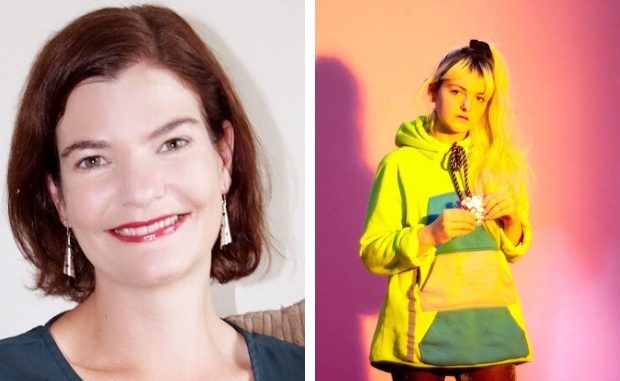
One Monday morning this month I got a phone call from a BBC researcher. She asked if I’d like to be on telly to defend a column about DFLs (Down from London) I wrote last year, as part of my debate series with the inestimable Matthew Munson. You can read it here https://theisleofthanetnews.com/2018/06/15/melissa-vs-matthew-dfls-and-dfas-benefiting-thanet-or-not/ Matthew won that vote, although now my poisonous, inflammatory views have got me on telly, I think it’s pretty obvious who’s the real winner.
I was in a beautician’s chair having my face stabbed with a 540 needled dermo-roller when Lauren rang. If only she’d made the call five minutes earlier I’d have skipped the stabbing: while it’s splendid for acne scarring, it does tend to leave one rather blotchy and mottled for the next week or so, not a look I’d choose for a TV appearance. Plus, I could barely hear her over the whirr of needles piercing flesh and my own resultant screams. Nor indeed, concentrate.
“What’s that? Go on telly to tell a beautiful young artist why she’s all that’s wrong with Margate and should clear off back to where she came from? Well, I don’t see how that could possibly backfire. I’m in!”
The piece was being created for the BBC’s Crossing Divides season, which looks at how society has fractured along age-old fault lines like class, race, religion, politics, and how connections may yet be made and social cohesion restored. Here, then, was an open goal: a hoary old Thanetian like me, utterly opposed to all forms of creativity, taking on some fey, arty, Johnny-come-lately, type.
Except I run a theatre company, write a bit and hail from Hertfordshire, while Daisy, my opponent, has actually lived in Thanet since childhood. And we agreed on almost everything, so our encounter didn’t quite go to script.
We met at the Two Halves pub in Margate: apparently the BBC, like myself, can’t resist a blindingly obvious metaphor. It was cleared of disgruntled drinkers by two beefy cameramen, the whole bar being needed to house my mottled face and swollen ego. “See, this is exactly what I mean, wretched DFLs, coming down here, turning honest working people out of their usual drinking hole of a Friday night! What an overgrown sense of entitlement, what outrageous arrogance!” I messaged to my husband, while smiling brightly at the director. Like most keyboard warriors, I’m a good deal more cowardly and conciliatory in the flesh.
I think I did OK. There were a few points I wanted to make that melted from my brain under the studio lights’ glare. For instance, yes, I am aware how absurd I sound championing working class culture in my ridiculously posh voice.
But also, I wish I’d said that when working class culture becomes something risible, inferior, something to be swept away and replaced, a new form of identity will often rush in to fill the void: indeed, it isn’t too fanciful, I believe, to suggest that the rise of the far right is related to this trend. The gentrification and homogenisation of social mores, the dominance of the metropolitan elite, are leaving the working classes socially and culturally homeless, and more inclined than ever to cleave to strong but loathsome identities, the EDL, Tommy Robinson and his thugs. Now it’s no longer acceptable to colonise and lampoon other countries, we are doing it to certain of our own British sub-cultures. It’s outrageous. And dangerous.
I didn’t make that excellent point, however, because I was too busy staring at Daisy and thinking, jeez, she’s so pretty. So pretty and so young. I’m going to look like her granny. And worse, she’s so nice I can’t even hate her. Why did I ever agree to this torment? Curse my wretched craving for attention!
The BBC only had one SD card in their entire outfit, (the license fee isn’t enough, it seems) and Daisy and I talked A LOT, so we had only 90 seconds to each say what we’d learned from the encounter, then chink our two halves of beer cheesily to end the piece. I’d learned that some DFLs are really trying to reach out to disadvantaged local youngsters: she’d learned that the Turner can be a terrifying, confusing place if contemporary art isn’t part of your milieu.
The piece will air in April. Once I’ve seen how bad my face looks, maybe I’ll post a link.

